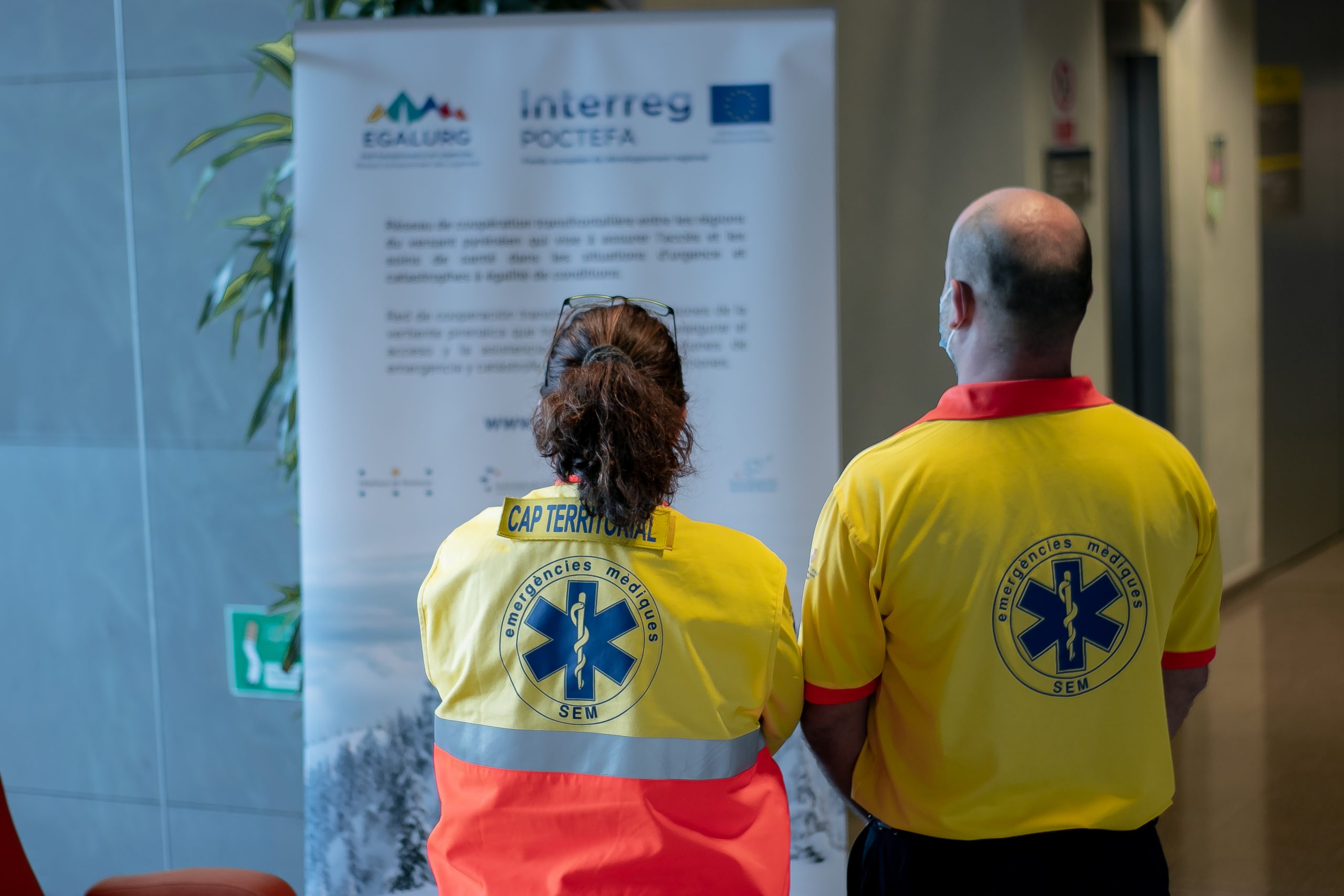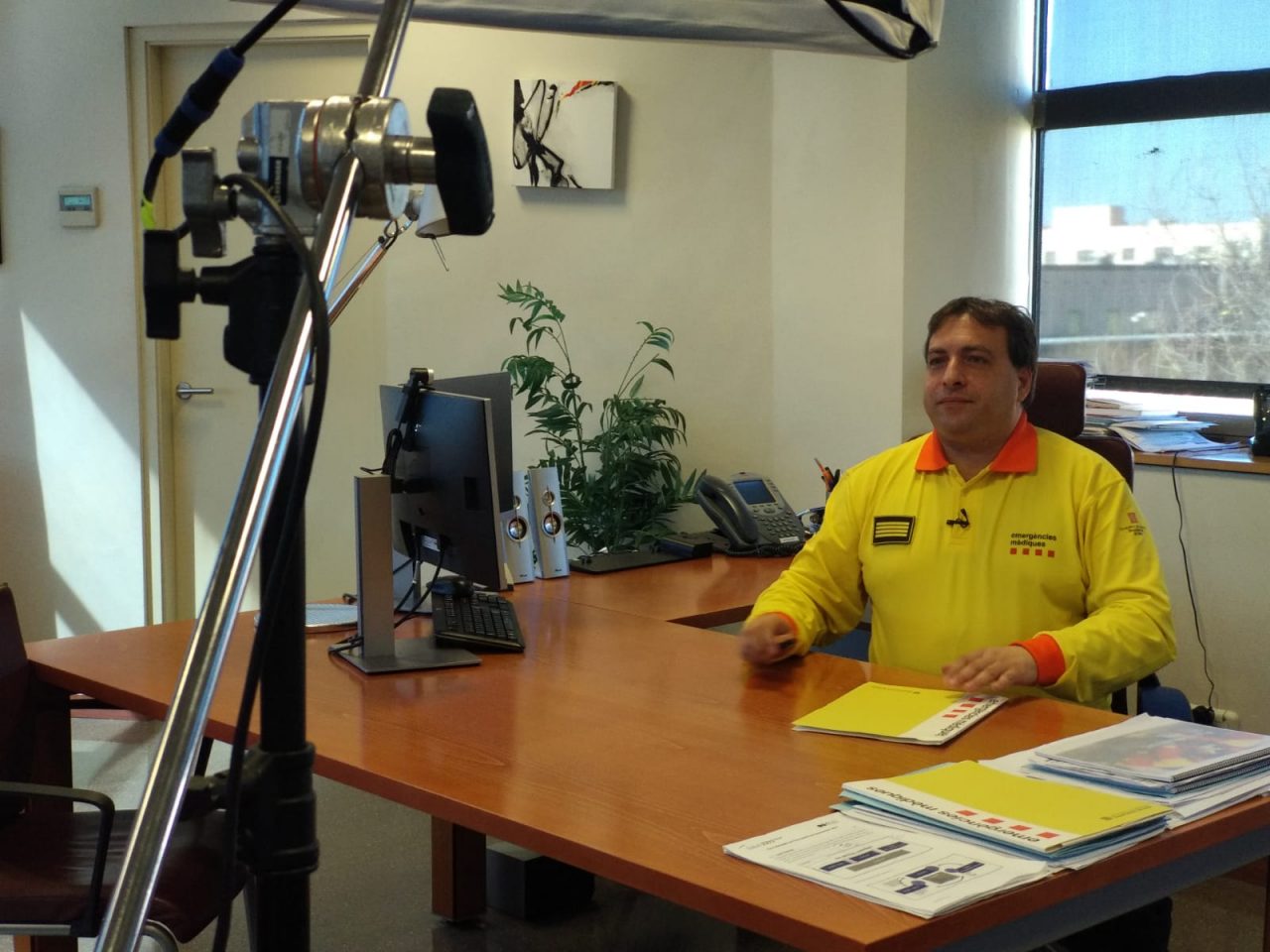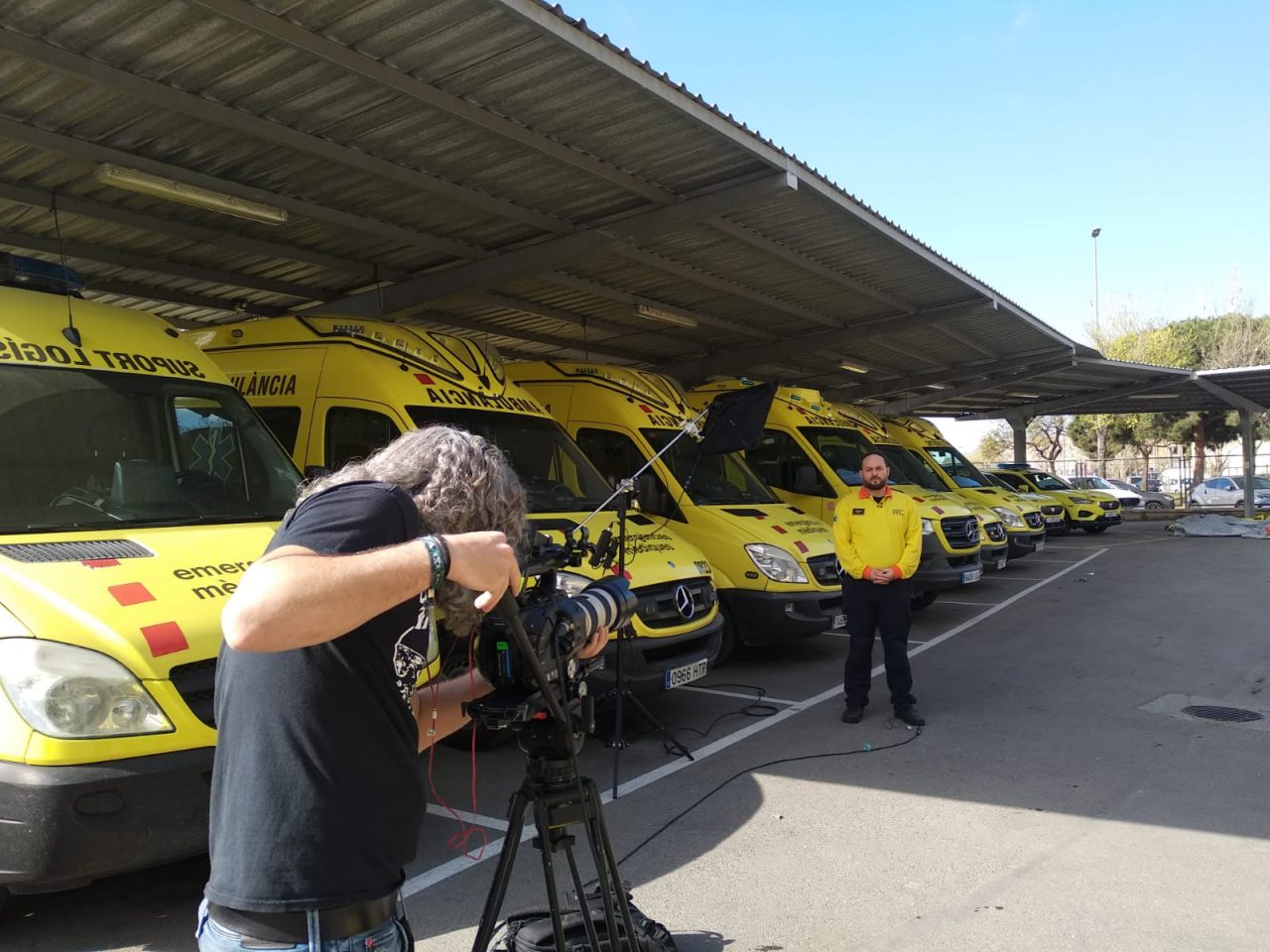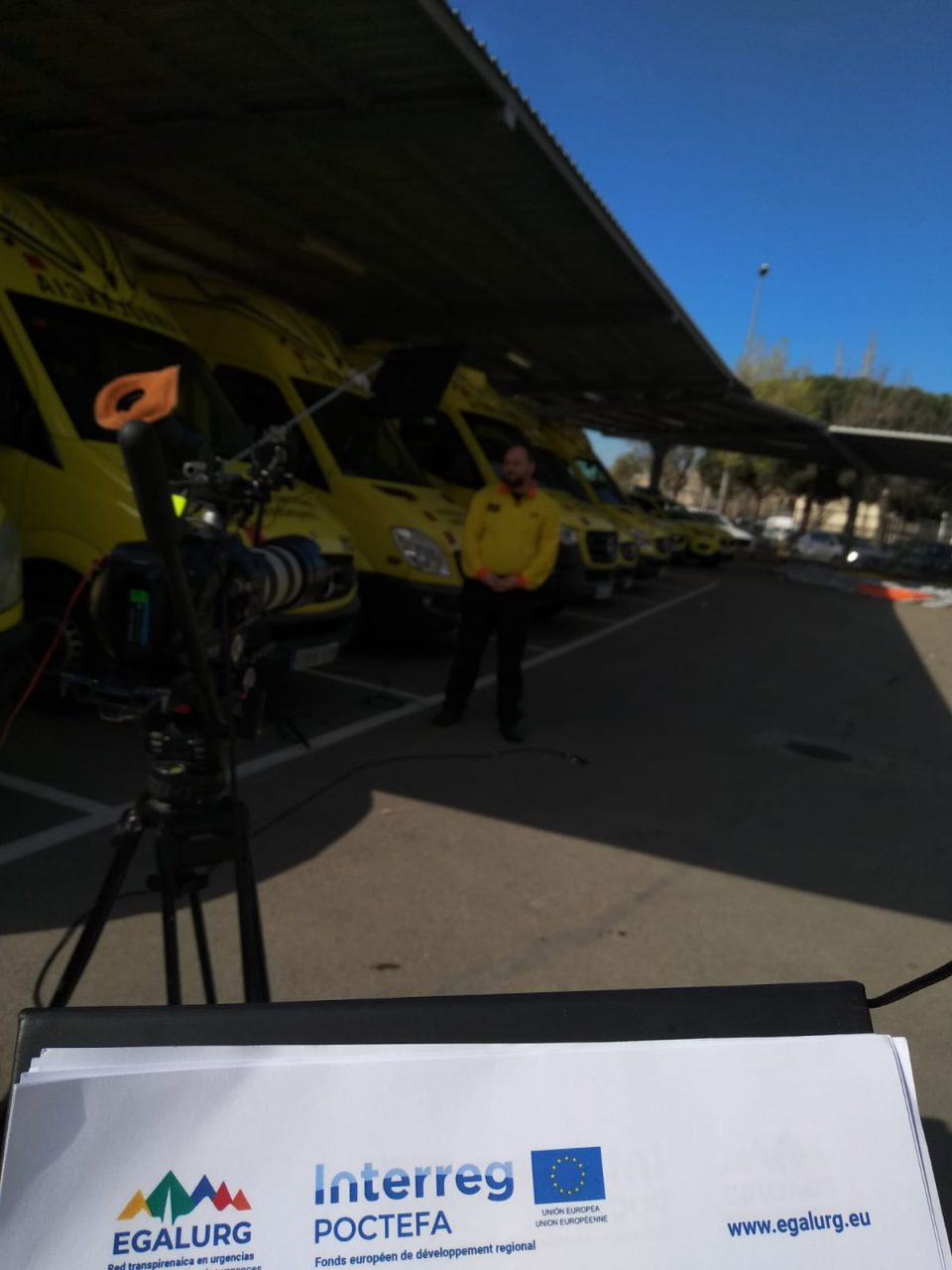Both initiatives are being promoted within the framework of the EGALURG network and will be announced in all regions involved during the third quarter of 2021.
The entities that form the EGALURG European cross-border cooperation network are making progress in their efforts to improve medical care in emergency and disaster situations in the Pyrenees region, despite the heavy workload caused by COVID-19. The Medical Emergency System (SEM) will manage actions 4 and 5 of the project, which focus on the creation and testing of joint cross-border protocols and the development of a university master’s degree to promote specialized training in emergency and disaster healthcare management.
One of the main pillars of the EGALURG network is to promote cooperation between regions to ensure that borders do not represent an obstacle when it comes to providing medical care and that medical devices can be mobilized to support other cross-border territories. One of the current tasks of the SEM team involved in EGALURG is to collect and categorize information on each region’s health units. This will allow joint action protocols to be developed. All out-of-hospital medical resources in the regions involved will be transferred to a map, which will be created together with the other member entities.
Antoni Encinas, head of the SEM, provides a direct example of the advantages of using common protocols to make information and resources available to all members: “For example, if a health disaster were to occur in Puigcerdà, we know that several SEM ambulances would be able to reach the location to assist those in need within 20 minutes, but we don’t know what resources they would have on the other side of the border that could help us treat the victims.”
To achieve this, simply knowing what resources are available to the regions is not enough; it is also important to overcome administrative and legal barriers and to promote joint work to ensure that medical devices are effectively deployed in crisis situations.
Cross-border training
At the same time, SEM professionals are combining their healthcare work with participation in the project through the creation of a cross-border master’s degree in health crisis management, which will be offered as of the 2022-23 academic year. This degree program has an innovative edge over other university studies, since it has been designed as a theoretical and practical master’s degree, divided into four modules based on specific crisis scenarios that will increase in complexity as the program progresses.
It should be noted that this program, which is based on the acquisition of skills, has also been designed to attract professionals in positions that require large-scale decision-making, such as company managers or directors and senior civil servants who carry out essential work during potential health disasters. “This master’s degree is not aimed exclusively at health personnel. Students won’t learn how to intubate patients or stop bleeding. The idea is to provide them with the tools and knowledge they need to take the most effective action in a range of crisis situations and to offer the best possible medical assistance,” explained SEM professional Dr. Jorge Morales. Likewise, the program will be offered in two formats: complete training or modular training. The latter will allow students to take modules separately, depending on their interests.
The cross-border master’s degree will be taught by both the Universitat de Barcelona and Université Paul Sabatier in Toulouse and will be offered in two formats: complete training or modular training, depending on the specific interests of the students. The full degree will last two years and will be divided into four academic semesters. The teaching staff will be made up of specialist professionals in the field of crisis management. The complete program for the master’s degree will be published in the first semester of 2022.
Four entities involved
The EGALURG consortium is made up of four entities: University Hospital Center of Toulouse (Toulouse), Navarrabiomed Biomedical Research Center (Pamplona – Iruña), Hospital Center of the Basque Coast (Bayonne) and the SEM, a public body that operates throughout Catalonia to assist during prehospital emergencies. This latter entity is headquartered in Hospitalet de Llobregat (Barcelona) and has two additional offices in Reus and Barcelona.
The project is co-funded (65%) by the European Regional Development Fund (ERDF) through the Interreg V-A Spain-France-Andorra Program (POCTEFA 2014- 2020). The goal of the POCTEFA program is to strengthen the economic and social integration of the Spain-France-Andorra cross-border area. It focuses its help on the development of cross-border economic, social and environmental projects through joint strategies in favor of sustainable regional development.



